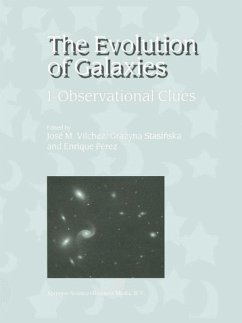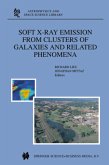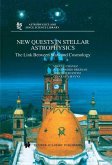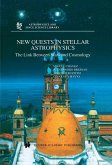Galaxies have a history. This has become clear from recent sky surveys, which have shown that distant galaxies, formed early in the life of the Universe, differ from the nearby ones.
New observational windows at ultraviolet, infrared and millimetric wavelengths (provided by ROSAT, IRAM, IUE, IRAS, ISO) have revealed that galaxies contain a wealth of components: very hot gas, atomic hydrogen, molecules, dust, dark matter. A significant advance is expected due to new instruments (VLT, FIRST, XMM) which will allow one to explore the most distant Universe.
Three Euroconferences have been planned to punctuate this new epoch in galactic research, bringing together specialists in various fields of Astronomy. The first, held in Granada (Spain) in May 2000, addressed the observational clues. The second will take place in October 2001 in St Denis de la Réunion (France) and will review the basic building blocks and small-scale processes in galaxy evolution. Thethird will take place in July 2002 in Kiel (Germany) and will be devoted to the overall modelling of galaxy evolution. This book contains the proceedings of the first conference. It is recommended to researchers and PhD students in Astrophysics.
Hinweis: Dieser Artikel kann nur an eine deutsche Lieferadresse ausgeliefert werden.
New observational windows at ultraviolet, infrared and millimetric wavelengths (provided by ROSAT, IRAM, IUE, IRAS, ISO) have revealed that galaxies contain a wealth of components: very hot gas, atomic hydrogen, molecules, dust, dark matter. A significant advance is expected due to new instruments (VLT, FIRST, XMM) which will allow one to explore the most distant Universe.
Three Euroconferences have been planned to punctuate this new epoch in galactic research, bringing together specialists in various fields of Astronomy. The first, held in Granada (Spain) in May 2000, addressed the observational clues. The second will take place in October 2001 in St Denis de la Réunion (France) and will review the basic building blocks and small-scale processes in galaxy evolution. Thethird will take place in July 2002 in Kiel (Germany) and will be devoted to the overall modelling of galaxy evolution. This book contains the proceedings of the first conference. It is recommended to researchers and PhD students in Astrophysics.
Hinweis: Dieser Artikel kann nur an eine deutsche Lieferadresse ausgeliefert werden.









